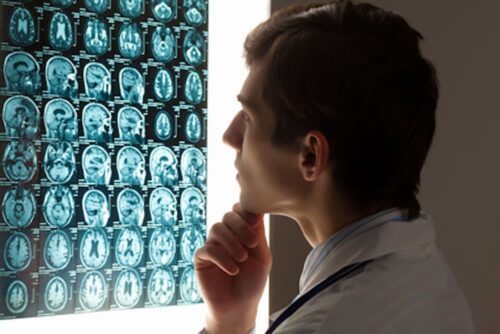
If you or a loved one has recently sustained a brain injury, you’ve most likely done your research concerning how these injuries typically present, how long they take to heal, and more. That said, there’s a lot of misinformation out there concerning TBIs, which is why we’ve compiled some of the most common myths surrounding TBIs below. Read on to learn more about common TBI myths and how Casper & de Toledo can help if you or a loved one has sustained a TBI due to the negligence of another.
Five Common TBI Myths: Debunked
Myth #1: You have to lose consciousness to have a TBI.
Many people think that a TBI only occurs when a person is knocked out or rendered unconscious by a blow to the head. However, this is not true. A person can have a TBI even if they remain awake and conscious after the injury. In fact, most TBIs are classified as mild and do not involve loss of consciousness, though this does not mean that they are not serious. Even a mild TBI can cause significant physical, cognitive, and/or emotional problems, as well as sleep disturbance.
Myth #2: You can easily diagnose a TBI with a CT scan or an MRI.
Another common myth is that a TBI can be easily detected and diagnosed with imaging tests such as computed tomography (CT) scans or magnetic resonance imaging (MRI). While a CT scan can reveal some evidence of acute trauma such as skull fractures or brain bleeding, they cannot always detect the microscopic damage that occurs in the brain tissue after a TBI. Some TBIs may not show up on these standard clinical scans at all At least in Connecticut, Casper & de Toledo has pioneered the use of advanced neuroimaging in brain injury litigation. Such advanced imaging techniques often involve seeking services outside of Connecticut.
Myth #3: You will recover from a TBI within a few weeks or months.
Many people assume that a TBI is a temporary condition that will heal over time. However, this is not always the case. Recovery depends on the type, location, and severity of the injury, as well as your individualized resilience to the injury. Because we are all different, a TBI can have long-term or permanent effects on a person’s brain function and quality of life. In fact, the most recent science suggests that close to 50% of the TBI population experienced long-term consequences of the injury. Additionally, a TBI can also increase the risk of developing neurodegenerative diseases such as Alzheimer’s or Parkinson’s later in life.
Myth #4: All TBIs are the same and have the same outcomes.
Another myth is that all TBIs are alike and have predictable outcomes. However, this is far from the truth. Every TBI is unique and affects each person differently. The outcome of a TBI depends on many factors such as the cause of the injury, the force and direction of the impact, the age and health of the person, the treatment received, and the support available, and as previously noted, the patient’s unique features that may be genetic. We all have witnessed people experience different trajectories of recovery from COVID-19. Recovery from brain trauma can likewise be varied.
Myth #5: You can handle a TBI on your own without legal help.
The last myth is that you can deal with a TBI on your own without seeking professional assistance. This is absurd! First, if you have suffered a brain injury, you need to have expert healthcare advice. And from our perspective, we know that within healthcare, not every provider has the knowledge and/or experience to properly guide you through the healing process. Second, your choice of legal representation can make a huge difference. Not every injury lawyer is qualified to guide you through your recovery and claim process.
Don’t face a TBI caused by the negligence of others on your own–contact a seasoned Connecticut brain injury lawyer from Casper & de Toledo for a free case evaluation today.

